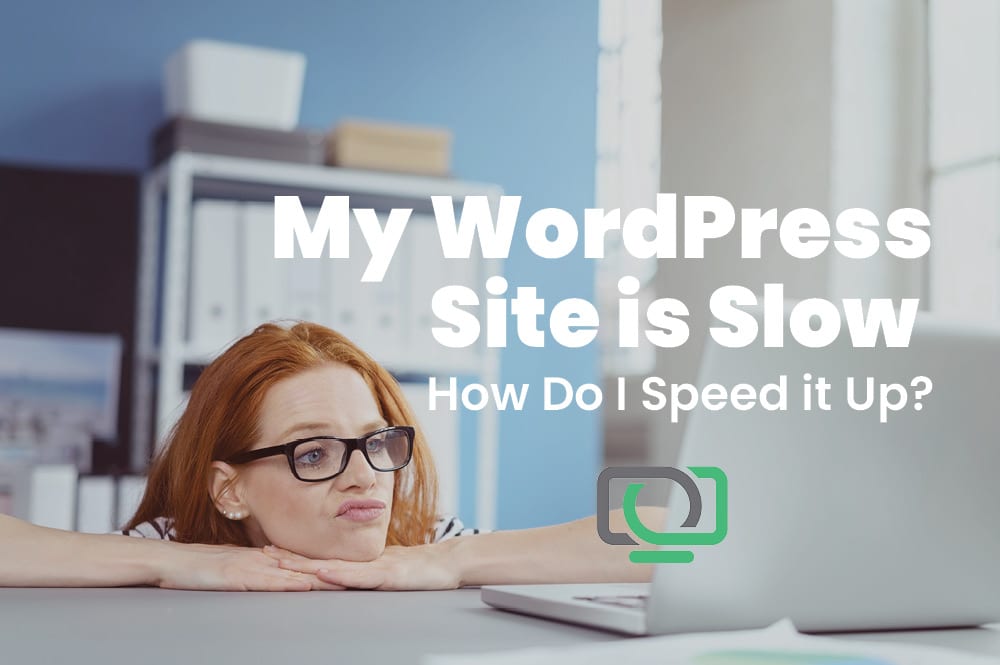
Time is money, so knowing how to speed up a slow website is important. The latter affects your search engine ranking and user experience. In fact, studies show that if websites don’t load within 2- to 3-seconds, there is a significant amount of users who will leave the website before it’s fully loaded, resulting in a lost opportunity. Specifically, with WordPress, it can be very challenging to get a site to load within 3 seconds, and there is a wide variety of reasons for that. This is why it’s important to know how to speed up your WordPress website’s speed. You may not be able to get your WordPress down to that 3 second loading time, but there are practical steps that could be taken to help.
The most common reasons why your WordPress website is loading slow
- Shared website host. These would be common website hosts where you have a shared website environment where thousands of websites are all on the same server. As a result, your website speed is inevitably affected by these other websites which means your website will be slow when loading because the server is managing thousands of other websites simultaneously.
- Slow website host. Not all website hosts are created equal. We’ve written about this before. It’s important that you select a website host that has really high deliverability on your website’s speed.
- Poorly developed themes with plugins. When you have WordPress themes or plugins that are not developed correctly, this could affect your website speed. It’s important to identify those trouble spots and get rid of those plugins and themes and redo the website if needed.
- Using a theme, in general. We wrote an article about whether to use a theme or to not use a theme. You might not want to use a theme at all because they could add too much site speed to your website so considering a theme is really important.
- Optimized images. This is one that we see all that time and is very common. You could have a fast website host, you could have everything designed and developed right, but you don’t optimize your images for your website. You use full-size images on your website and this could cause your website to run slow. Make sure your images are optimized — and this is pretty common for websites that are done by an individual without an extensive website knowledge.
- Too many plugins. Use as few plugins as you can to accomplish the tasks you need to accomplish. Make sure to turn off or delete any plugins or themes that aren’t being used on your website. Even though you aren’t using these plugins or themes, they can add codes to all the pages of your website and cause your website to run slow. Not sure about plugins? Check out this article.
- Old WordPress, plugins, themes, or server technology. If your website is four or five years old and it’s never been updated, that could be causing part of your slowdown. In addition to that, server technology changes, so make sure that your server or your host company has the most updated technology to the latest version.
- No caching. There should be no ways for browsers to cache your website or to store data based on your website. As a result, every time your website is loading, it has to refresh (and it has to reload everything at the same the time). When your website gets rid of cache data, then it will also load a lot quicker.
How to identify what is slowing your website speed
There are a lot of great, free tools out there to identify problems with website speed and other problems. Note that with WordPress, you can’t necessarily fix all the problems — in fact, you might find that fixing one problem might create another problem (or might break your website entirely). You likely won’t be able to get a perfect score on your WordPress website, but these free tools and suggestions will help you identify the problems:
Make a gameplan
Once the problem is identified, you can make a gameplan to address those problems (start with addressing the elephant in the room, so to speak). Get rid of the highest priority fixes. This is usually getting caching on your website, optimizing images, combining CSS and javascript, and things like that. When you address the highest priority fixes, you’ll find that your score will jump up relatively quickly on GT Metrix on the Google site speed test. Once you have addressed those issues, you’ll get down to the number one issue that we see which is hosting.
Make sure your hosting, plugins, and themes aren’t outdated
If you’re on an old server, this is affecting your site speed, and we usually like to address the hosting first because it’s really interesting to see how much more speed we could get out of a website first without doing anything but changing the website host. So, you’ll find that, first, deal with your website host; make sure that you’re on a really fast, really stable website host. Your current plugins and themes also might not be supported and updated anymore, so getting rid of them would likely help speed up your slow website.
Tools to help with website speed
Find some tools to help fix your website speed (yes, such tools actually exist)
- We like to use GT Metrix. This website offers great, free tools that help you identify problems that could be fixed one by one. For example, if GT Metrix shows you some problems with your website, you could actually fix those problems with the push of a button with a plugin. This is a case where we would recommend adding a plugin. If you have a lot of problems with your images, it would be a lot of work to optimize your images and then reupload them and SEO those images on your website.
- WPMUDEV won’t help necessarily address problems with your server, but these tools will help you address most of the onsite issues. Smush is an automatic image optimizer which will help you with that core image issue and get you most of the way. Hummingbird – will help you address most of the other issues that typically cause the website to slow down beside the server.
Hire a professional for a one-time optimization plan
For most users, some optimization items require expertise beyond what general settings and changes can do. In cases like this, it might be more beneficial and sometimes necessary to hire a website professional like our team over at MyUnlimitedWP to handle these website issues, or get one of our higher tier monthly plans to help you to take your site speed and SEO home!

